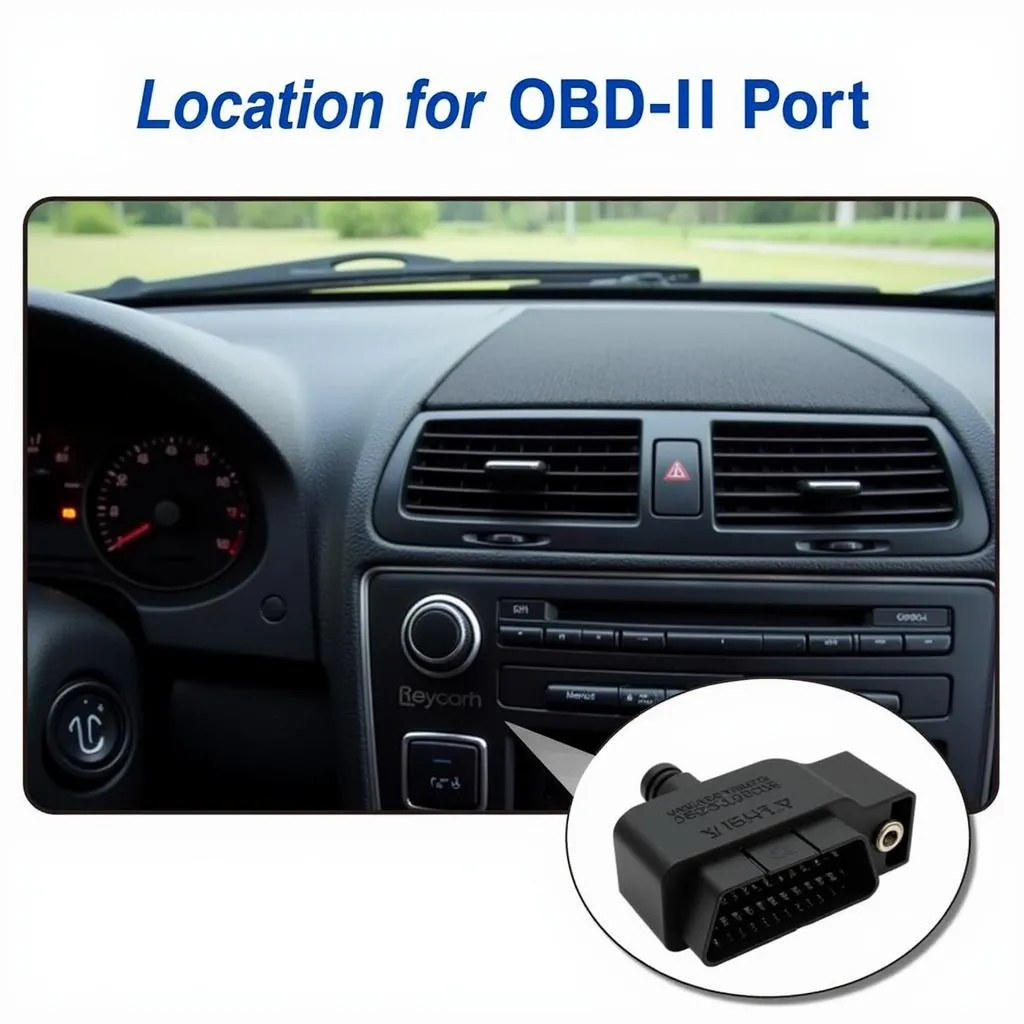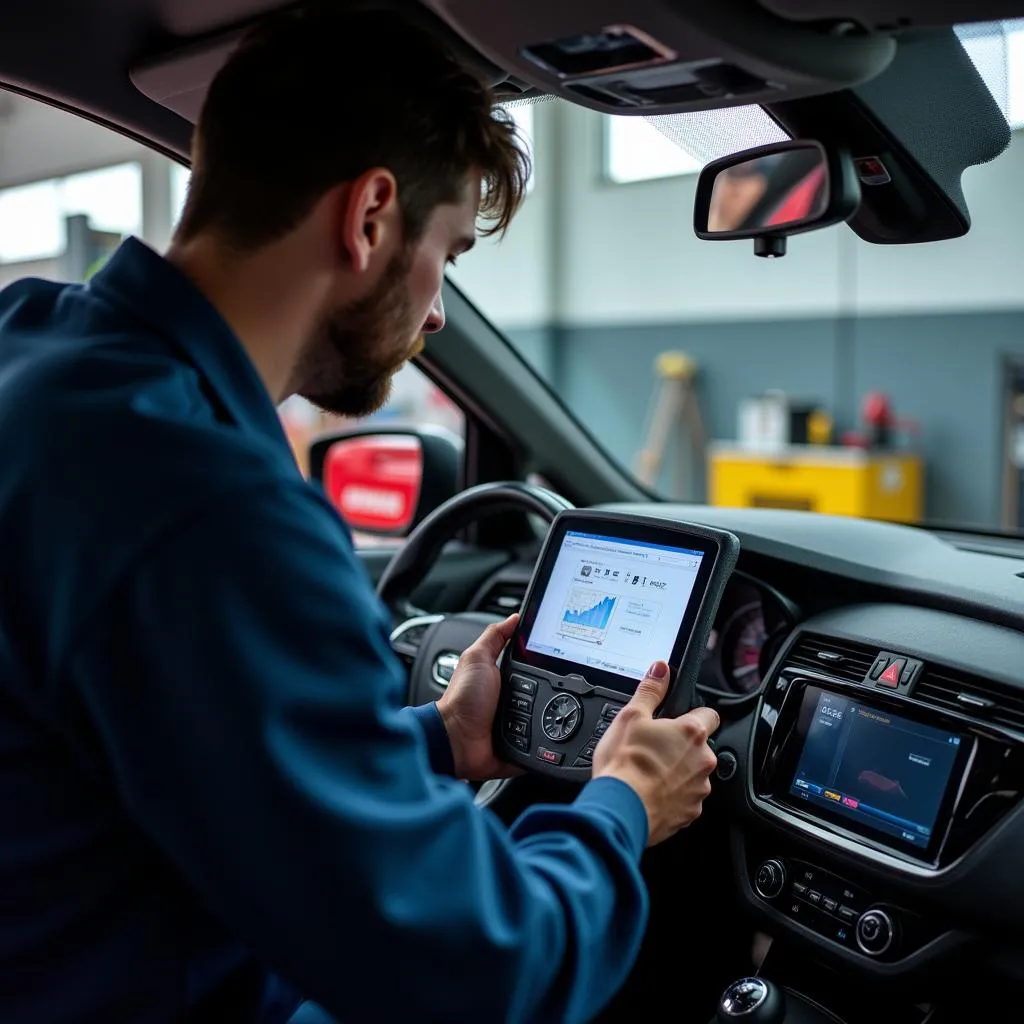Finding the best computer scan tool for your needs can feel like navigating a maze of technical jargon and confusing specs. Whether you’re a seasoned mechanic or a car enthusiast looking to troubleshoot your own vehicle, choosing the right scan tool is crucial. It’s your window into your car’s computer, providing valuable insights into its health and performance.
This guide will walk you through everything you need to know about computer scan tools, from understanding their functionalities to choosing the best one for your specific needs.
Understanding Computer Scan Tools: More Than Just Code Readers
Many people use the terms “computer scan tool” and “code reader” interchangeably, but they aren’t quite the same thing. While a code reader simply identifies and displays the trouble codes stored in your car’s computer, a computer scan tool goes several steps further. Think of it as the difference between having a basic dictionary and a comprehensive encyclopedia.
A good computer scan tool allows you to:
- Read and clear trouble codes: Identify the source of those pesky “check engine” lights and reset them after resolving the issue.
- View live data streams: Monitor your engine’s performance in real time, including RPM, speed, coolant temperature, oxygen sensor readings, and more.
- Perform advanced diagnostics: Depending on the model, you can access functions like ABS bleeding, airbag system resets, and transmission control module programming.
Key Factors to Consider When Choosing a Scan Tool
With countless options on the market, choosing the best computer scan tool can feel overwhelming. To simplify the process, consider these key factors:
1. Vehicle Compatibility
This is arguably the most crucial factor. Ensure the scan tool you choose is compatible with your vehicle’s make, model, and year. Some tools are designed for specific makes, while others offer broader compatibility.
2. OBD-II vs. Manufacturer Specific
All cars manufactured after 1996 in the US are equipped with an OBD-II port. However, some manufacturers also incorporate proprietary protocols. If you’re working with a specific make, a manufacturer-specific tool might be necessary to access advanced functionalities.
 Car OBD2 Port Location
Car OBD2 Port Location
3. Functionality and Features
Do you need a tool for basic code reading and clearing, or are you looking for advanced diagnostic capabilities? Consider the features you require, such as:
- Live data graphing: Visualize sensor data over time to identify patterns and potential issues.
- Bi-directional controls: Test individual components by sending commands to your vehicle’s computer.
- ECU coding and programming: Modify your car’s software for performance tuning or customization (requires advanced knowledge).
4. User Interface and Experience
A user-friendly interface can make all the difference. Look for a scan tool with a clear, intuitive menu system, a readable display, and ergonomic design. Some tools offer wireless connectivity, allowing you to view data on your smartphone or tablet.
 Mechanic Using Diagnostic Scan Tool on a Car
Mechanic Using Diagnostic Scan Tool on a Car
5. Budget
Computer scan tools range in price from affordable DIY options to professional-grade devices that can cost thousands of dollars. Determine your budget early on to narrow down your choices.
Types of Computer Scan Tools
- Basic Code Readers: These entry-level tools are perfect for DIYers who want to read and clear basic trouble codes. They’re affordable and easy to use.
- DIY Scan Tools: These tools offer more features than basic code readers, including live data streaming and some diagnostic capabilities. They’re a good option for car enthusiasts who want more control over their vehicle’s maintenance.
- Professional Scan Tools: Designed for mechanics and automotive professionals, these tools offer the most comprehensive functionalities, including advanced diagnostics, bi-directional controls, and ECU coding.
“Nissan Consult-II Factory Scan Tool”: A Case Study in Manufacturer-Specific Tools
Sometimes, going beyond the generic OBD-II capabilities is necessary, especially when dealing with specific car brands. Take the “Nissan Consult-II Factory Scan Tool” for instance. This specialized tool grants access to the deeper layers of Nissan and Infiniti vehicles, allowing for more comprehensive diagnostics and programming functionalities that a general-purpose tool might miss.
Maintaining Your Scan Tool
Just like your car, your computer scan tool needs regular updates to function optimally. Manufacturers release updates that include new vehicle definitions, bug fixes, and feature enhancements. Ensure your tool is updated to access the latest functionalities.
Conclusion
Choosing the best computer scan tool requires careful consideration of your needs, budget, and the level of functionality you require. Whether you’re a DIYer or a professional mechanic, a good scan tool is an invaluable investment that can save you time, money, and frustration in the long run. Remember to prioritize vehicle compatibility, user experience, and essential features to make an informed decision.
For further information on specific scan tool models and in-depth reviews, be sure to explore DiagXcar, your trusted resource for all things automotive diagnostics.


